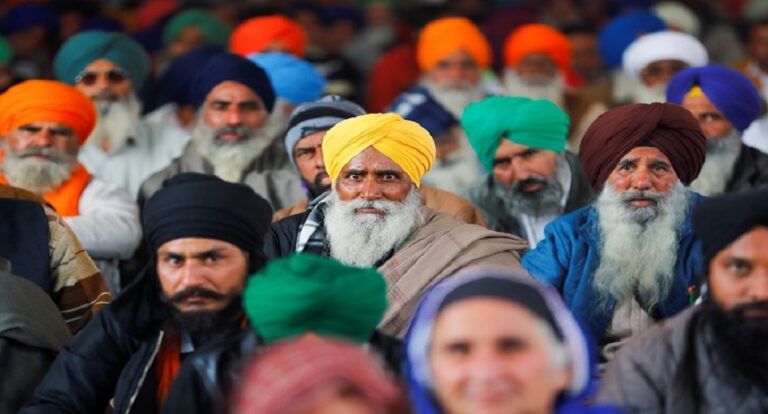
(Reuters) – India blocked mobile internet services in several areas around New Delhi on Saturday as protesting farmers began a one-day hunger strike after a week of clashes with authorities that left one dead and hundreds injured.
Angry at new agricultural laws that they say benefit large private food buyers at the expense of producers, tens of thousands of farmers have been camped at protest sites on the outskirts of the capital for more than two months.
At the main protest site near the village of Singhu on the northern outskirts of the city, there was a heightened police presence on Saturday as hundreds of tractors arrived from Haryana, one of two states at the centre of the protests.
“Many farmers’ groups have joined the protest site since last night,” said Mahesh Singh, a 65-year-old farmer from Haryana. “They have come to show their support and more farmers are expected to come in the next two days.”
India’s interior ministry said on Saturday internet services at three locations on the outskirts of New Delhi where protests are occurring had been suspended until 11 p.m. (1730 GMT) on Sunday to “maintain public safety”.
Indian authorities often block local internet services when they believe there will be unrest, although the move is unusual in the capital.
Farm leaders said the hunger strike by hundreds of protesters, primarily at Singhu and two other protest sites and designed to coincide with the anniversary of the death of Indian independence leader Mahatma Gandhi, would show Indians that the demonstrations were non-violent.






